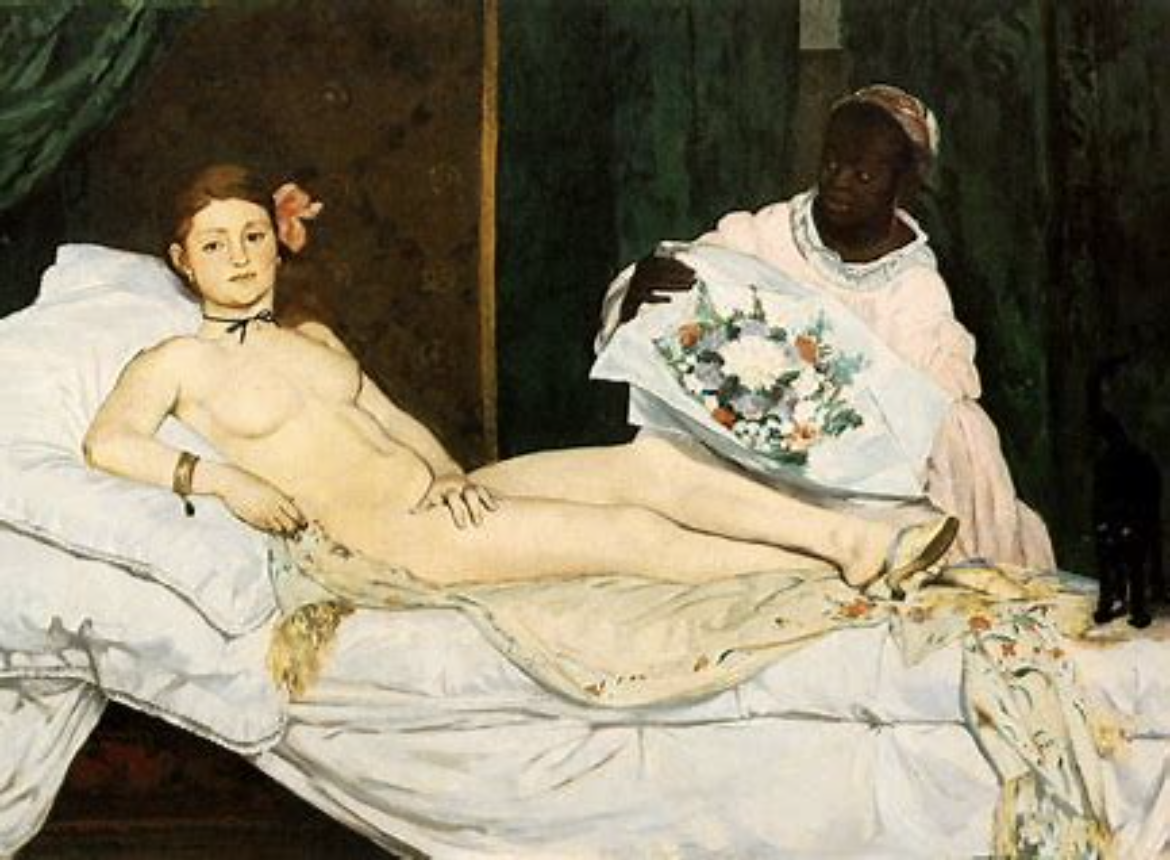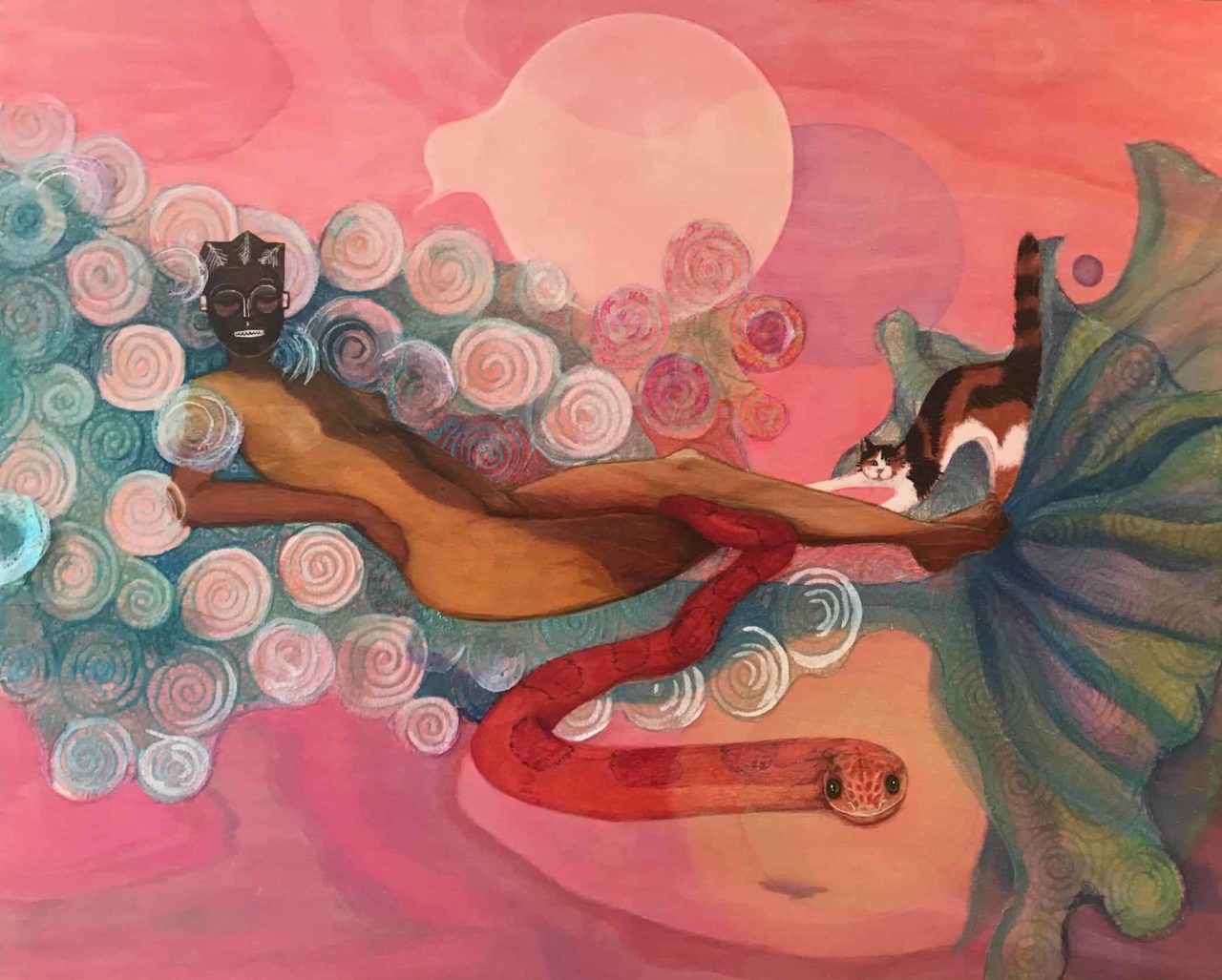Old word for a new Century
“Odalisque” is a sumptuous word. It tastes like vanilla ice cream with a fine brandy chaser. It is formed of sensual sounds and leaves the tongue with a sibilant whistle.
It is an old word created by the French that served to objectify women for the male gaze, identifying women who existed solely for male pleasure.
From the original Turkish word “odalik”, referring to a chambermaid or female attendant, it transformed during the colonial period to odalisque. Salacious imaginings of the Sultan’s harem led to transforming the word from servant to concubine.
During the Orientalist art movement in 19th century Europe, male artists created female nudes without the strictures of the neoclassical period. Take Edouard Manet’s Olympia, the odalisque masterpiece that scandalized Paris in 1865. Here, I gleefully revise the iconic pose for the 21st century, altering its original unseemly message.

Here’s the proposition: new meaning for an old word. Semantic change is change in language regarding the evolution of word usage—usually to the point that the modern meaning is radically different from the original. Olympia is plucked from historic context and becomes a new woman, and odalisque becomes a new word, free to describe powerful, confident womanhood. Content with her power and deed, she reclines and puts up her feet. She takes a break from leading the world to relax and recharge.
I am convinced that women will lead the world out of hatred and chaos. Their leadership has already begun. Women continue positioning themselves to heal our planet and to teach us, once again, to care for one another. When it becomes tiresome hearing women called nasty, strident, abrasive, or slutty, or any of the plethora of cynical phrases degrading women, try out a new old word to inform and celebrate power and confidence. Be on the lookout for the modern-day odalisque!

